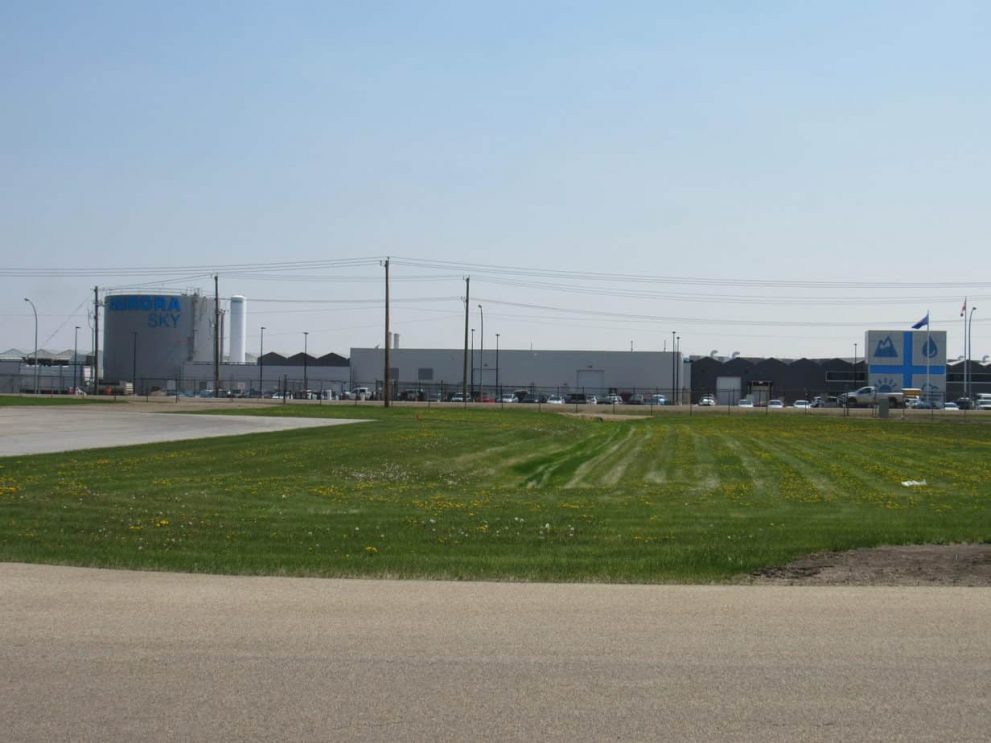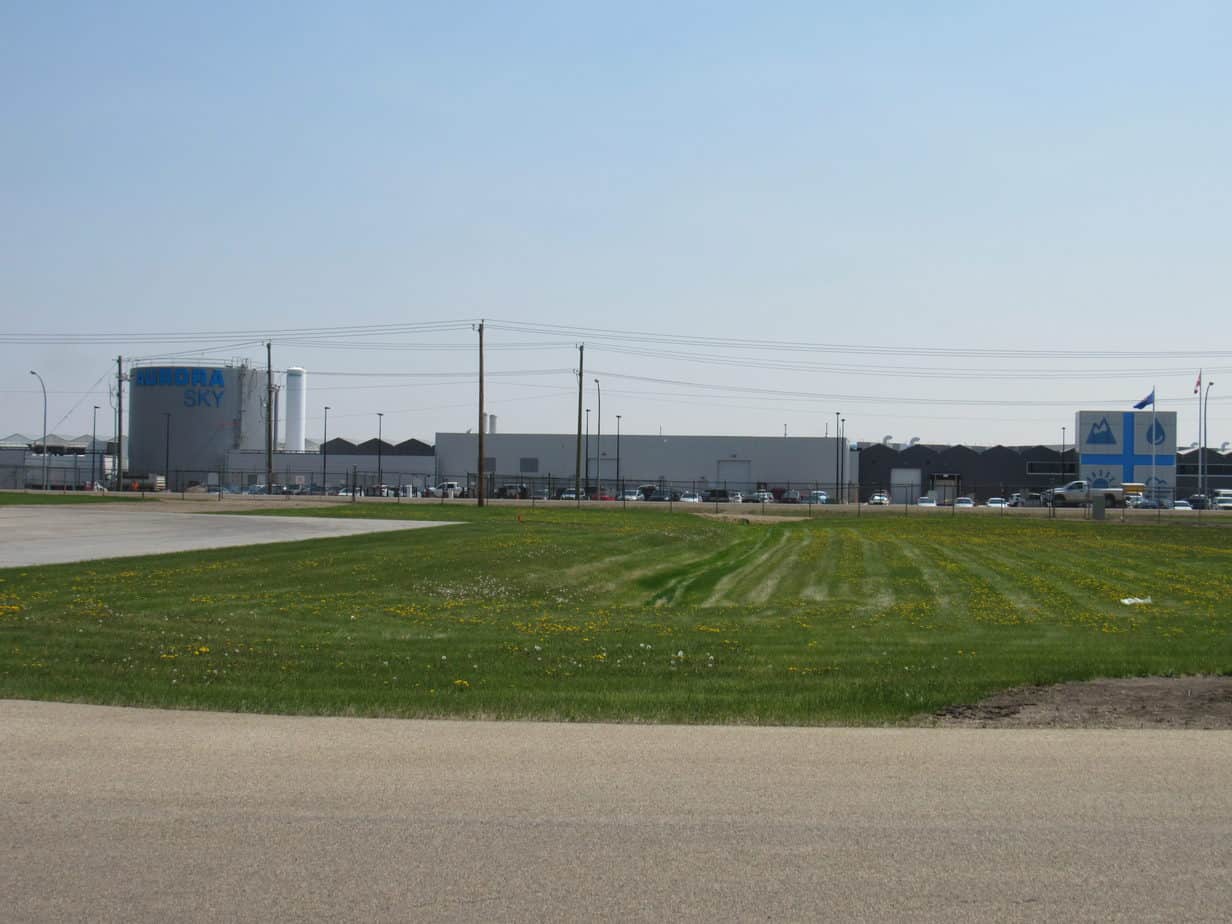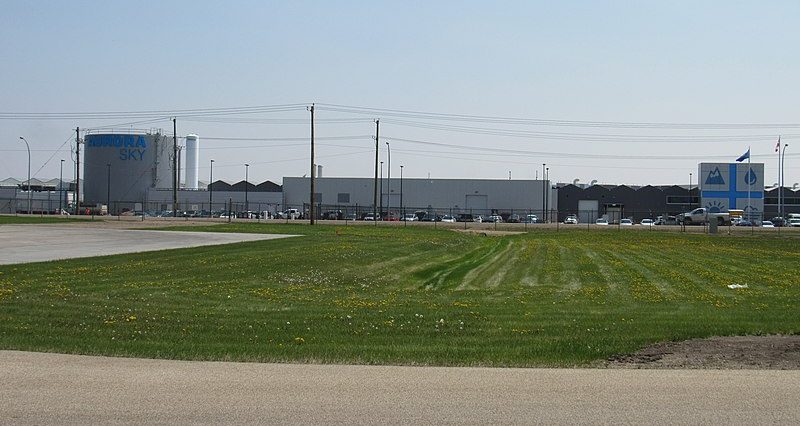
 Aurora Cannabis (Aurora Cannabis Stock Quote, Chart, News TSX:ACB) delivered mixed results in its latest quarterly earnings, but recent gains in share price are cause for a rating drop from ATB Capital Markets analyst David Kideckel.
Aurora Cannabis (Aurora Cannabis Stock Quote, Chart, News TSX:ACB) delivered mixed results in its latest quarterly earnings, but recent gains in share price are cause for a rating drop from ATB Capital Markets analyst David Kideckel.
In an update to clients on Monday, Kideckel lowered his rating from “Sector Perform” to “Underperform,” with the analyst saying capital raises by the company and industry headwinds are cause for caution about ACB.
Edmonton-headquartered licensed cannabis producer Aurora Cannabis announced fiscal first quarter 2021 results on Monday, bringing in net revenue down one per cent sequentially to $67.8 million with an adjusted EBITDA loss of $57.9 million compared to a loss of $32.3 million for the previous quarter. The EBITDA loss included restructuring payments such as contract and employee termination costs totalling $47.4 million.
“We continue to take the necessary steps to execute our plan and transform our business to achieve sustainable profitability, and ultimately positive cash flow,” said CEO Miguel Martin in a press release. “Our Q1 2021 results are transitional but do highlight successes across a number of diverse profit pools. We remain the leader by revenue in the high-margin Canadian medical market, our international medical business experienced more than 40% net revenue growth this quarter, and our CBD brand Reliva is number one ranked by Nielsen in the US CBD sector.”
Aurora finished the quarter with about $250 million in cash and equivalents and subsequent to the quarter’s end raised about $127 million through its now fully drawn at-the-market offering. The company said its use of cash in operations over the Q1 showed significant positive progress, quoting cash used to pay capital expenditures of $15.0 million versus $32.0 million for the previous quarter.
“Given Aurora’s continued strong gross margins, reduced level of SG&A expense and capital expenditures, and ongoing improvements in working capital investment, management expects the Company to continue its move toward positive cash flow during fiscal 2021,” the company said.
On the quarterly numbers, Kideckel said sales of $67.8 million were above his $61.8-million estimate as well as the consensus $63.6 million, while the $57.9-million EBITDA loss was heavier than his expected $5.8-million loss and the Street’s $9.2-million loss.
The analyst noted consumer cannabis net sales representing about 51 per cent of total net sales was a two-per-cent drop, while medical cannabis net sales came in at about 49 per cent of total sales, representing about a four-per-cent sequential improvement and were mostly driven by international sales.
Kideckel called the results mixed, saying, “We view this as a transitional quarter as ACB cuts costs and adopts a CPG go-to-market approach. Over the long term, we are encouraged by ACB’s improved cost structure, growth outlook (including the higher-margin international medical cannabis market) and US expansion optionality given its foothold in the US CBD market.”
“However, over the near-term, we continue to have reservations on ACB’s capital raises (which strengthen ACB’s capital position but increase dilution) and the headwinds in the Canadian cannabis industry (e.g., the mismatch between supply and demand which may lead to further inventory impairments and price compression. Given ACB’s recent stock price appreciation, we have moved to an Underperform rating,” Kideckel said.
Kideckel is pairing his rating with a price target of $10.50 (previously $10.25), which at press time represented a projected one-year return of negative 28 per cent.
Contrasting with management’s reiterated guidance to turning adjusted EBITDA-positive over the next quarter, the company’s Q2 fiscal 2021, Kideckel is calling for that to happen in fiscal 2022.
At the same time, he is upbeat on Aurora’s chances, particularly emphasizing the company’s international business in Europe via Aurora Nordic 1 in Denmark, which recently achieved GMP certification and obtained a sales license for flower and oil, and its US CBD business, where it has products in over 23,000 stores, altogether leaving the company “well-positioned” and with significant optionality to drive sales growth outside of Canada.
“Going forward, we expect that ACB will increasingly focus on accelerating sales growth of its premium brands in the Canadian recreational cannabis segment, while maintaining an optimized cost structure. We believe the Company’s sales growth outlook is positive, supported by its renewed CPG go-to-market approach and the steady growth in cannabis retail sales in Canada. We note that market share is still highly volatile in the Canadian cannabis market; therefore, ACB has an attractive opportunity to execute its strategic plan to increase its presence in premium segments which support higher-margin sales,” Kideckel said.
By the numbers, Kideckel thinks Aurora will generate fiscal 2021 revenue and adjusted EBITDA of $284 million and negative $75 million, respectively, and fiscal 2022 revenue and adjusted EBITDA of $390 million and $10 million, respectively.
Year-to-date, Aurora’s share price is down 56 per cent.
Leave a Reply
You must be logged in to post a comment.





 Share
Share Tweet
Tweet Share
Share




Comment